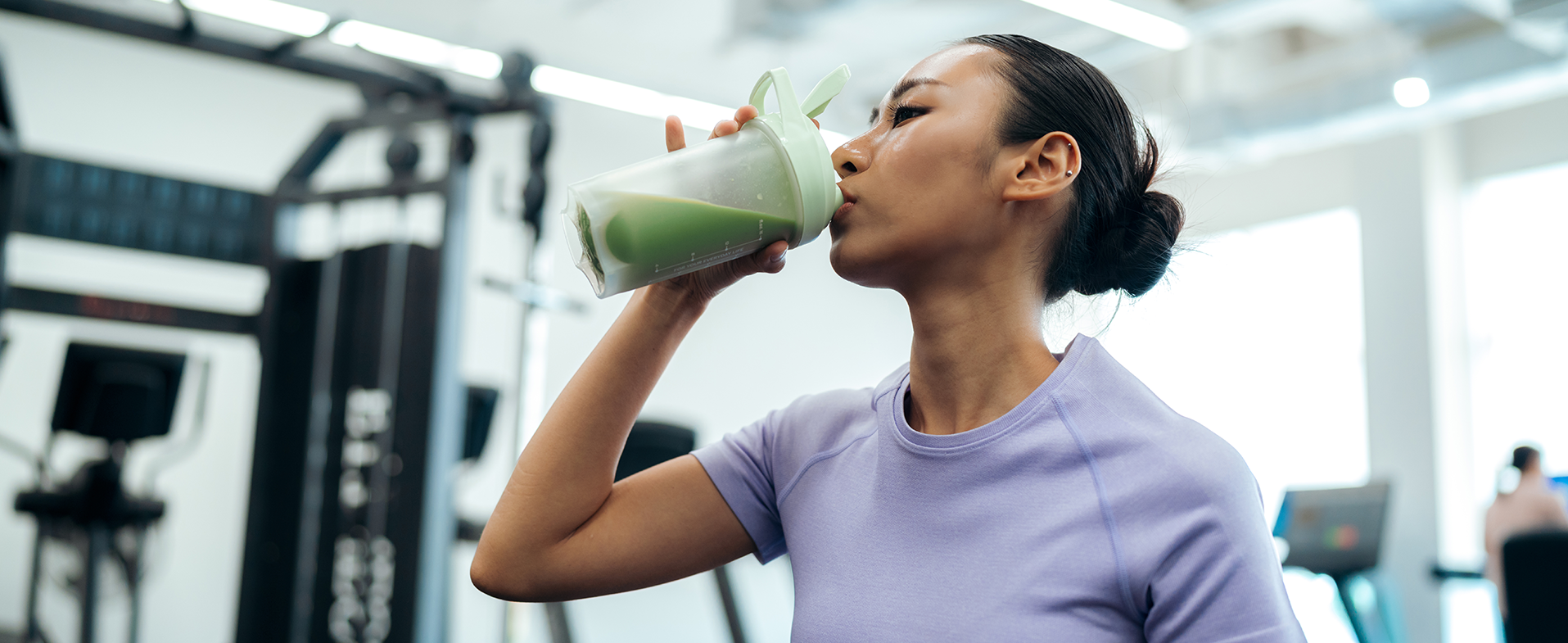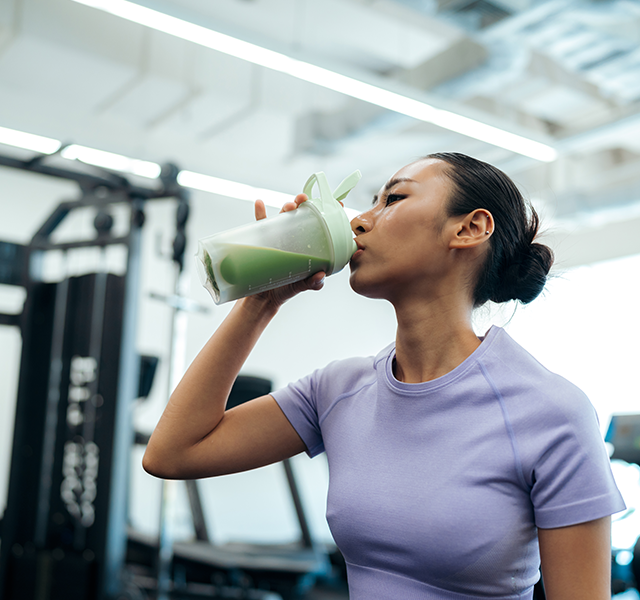The latest wellness trend? Creatine – along with a variety of other supplements used to enhance your workout. While the options are seemingly endless, supplements are not the only way to become a great athlete. We are the same humans we were thousands of years ago and look what our ancestors did – they cultivated farms (without tractors), climbed mountains and did so many huge performance tasks without taking factory-made supplements.
It’s best to get your nutrients from food first, as your body knows how to use the nutrients from food more efficiently than from isolated ingredients that are compounded in a factory (otherwise known as supplements). Once you’re eating a well-rounded diet, certain supplements can give you a boost. Here’s what to look for.
Supplements To Boost Your Workout
1. Creatine.
There’s a fever over creatine these days. So what is it, actually? Creatine comes from three amino acids (the building blocks of protein). It’s stored in your brain and muscles, which is why it’s a popular workout supplement.
Research shows that taking three to five grams of creatine daily can boost high-intensity strength, recovery and muscle regeneration. The primary food sources for creatine are meat and fish, along with vegan sources like pumpkin seeds, walnuts, almonds, spinach and spirulina.
If you want to take a creatine supplement, take it in powder form instead of a capsule. Powders are more readily absorbed than capsules. With capsules, your digestive tract has the added step of dissolving it first. For best results, take creatine right before or after exercising.
2. Protein
Protein helps with muscle recovery and muscle synthesis (building new muscle tissue). It also helps prevent muscle breakdown. Meat, fish and poultry are good sources of protein, along with vegan sources like soy, legumes, nuts and seeds. Whether you are a vegan or an omnivore, you’ll get enough protein through a well-rounded diet.
If you want to take a protein supplement, you’ll get the greatest benefits if you take 20 to 40 grams within one to two hours post workout. You could have a protein shake right after your workout and a well-rounded meal shortly thereafter.
The thing about protein supplements – whether they’re vegan or whey-based – is that you must read the ingredients. Food companies want to make everything taste like a candy bar. Look for the simplest powder with the fewest ingredients.
3. Branched chain amino acids
Branched chain amino acids are essential amino acids. This means our bodies don’t make them, so we have to get them through food. Branched chain amino acids are rich in food sources like meat, fish, legumes, dairy, quinoa, nuts and seeds. They can improve muscle growth, ease muscle soreness, decrease fatigue and reduce muscle damage.
There are three branched chain amino acids: leucine, isoleucine and valine. If you want to take a supplement, for every one milligram of isoleucine and valine you need two milligrams of leucine.
The timing of branched chain amino acids is less important than creatine and protein – as in, you can take them whenever, it doesn’t have to be immediately before or after a workout.
And if you are taking a protein powder supplement that contains the full spectrum of essential amino acids (there are nine) you don’t necessarily need to supplement with branched-chain amino acids.

Henry Ford Center for Integrative Medicine
4. Vitamin C
Vitamin C is prevalent in colorful fruits and vegetables. It helps our body produce collagen, which is a protein that’s abundant in our connective tissues. Collagen is necessary for joint recovery and ligament health. (And working out can be hard on your joints.) Like branched chain amino acids, it doesn’t matter when you take vitamin C.
That said, you shouldn’t take too much vitamin C. It’s an antioxidant, meaning it helps our bodies neutralize free radicals and toxins that cause inflammation and aging. But taking too much vitamin C can actually inhibit the body’s ability to do this and may increase the risk of kidney stones.
It’s recommended that women get 75 mg of vitamin C and men get 90 mg, but you shouldn’t take more than 2,000 milligrams total.
5. Fiber
Fiber helps create a healthy microbiome. A healthy microbiome is important to support the chemical reactions that take place from exercise, which improve your health and overall well-being.
And I know we’re talking about supplements, but it really is best to get your fiber from food. Your body knows how to get the fiber out of the food and taking a fiber supplement doesn’t really benefit the microbiome. The microbiome wants the whole food. The best sources of fiber? Fruits, vegetables, legumes and whole grains. I wouldn’t recommend having a heavy fiber meal (like oatmeal) right before a workout because it may lay a little heavy in your stomach, but it is essential to get fiber throughout your day.
Weighing Supplements Vs. Food
It’s important to note that the National Federation of State High School Associations expresses strong opposition to the use of supplements to enhance athletic performance for high school students. The American Academy of Pediatrics also says that performance-enhancing substances do not result in significant improvement in most teenage athletes – they simply require proper training, a nutritious diet and plenty of sleep.
So while it might sound boring, it always comes back to proper nutrition. Let’s do food first – supplements second.
Dr. M. Elizabeth Swenor is the medical director of lifestyle, integrative, and functional medicine at Henry Ford Health. She sees patients at Henry Ford Medical Center in Bloomfield Township. Learn more about Dr. Swenor and read her articles here.



